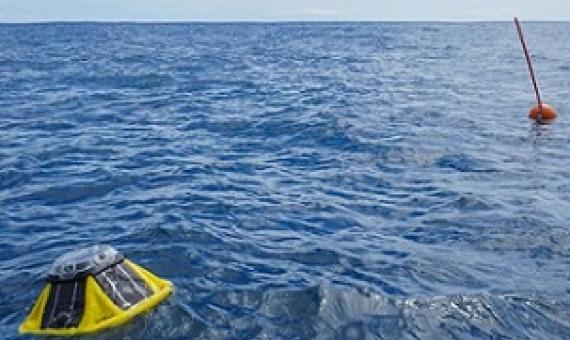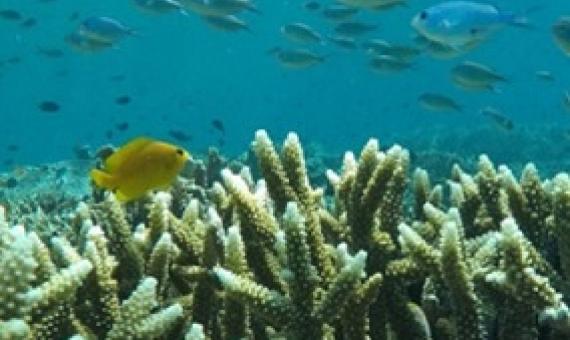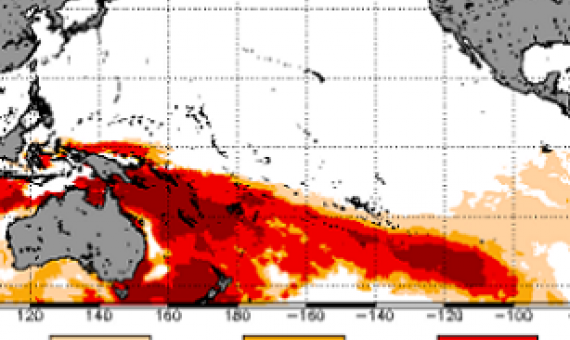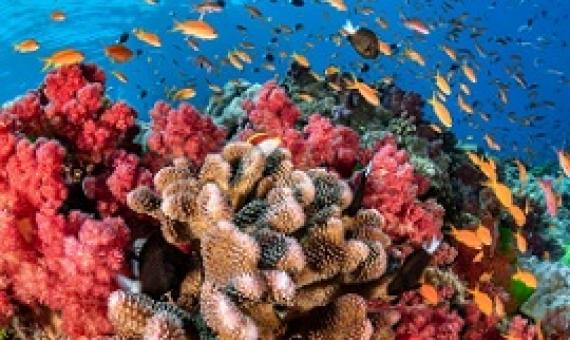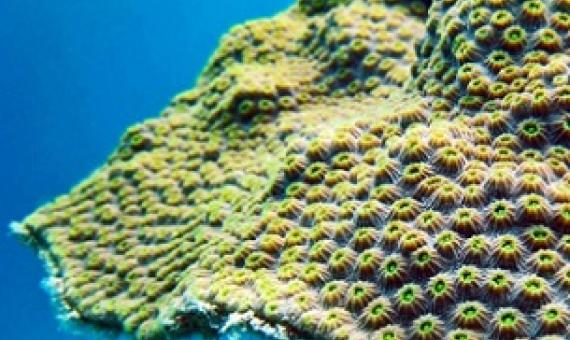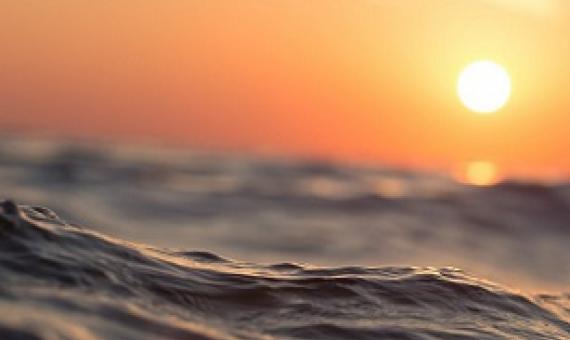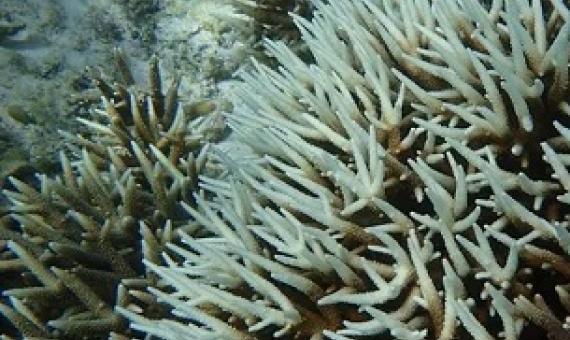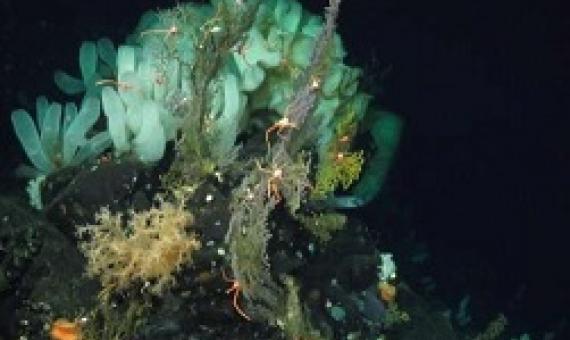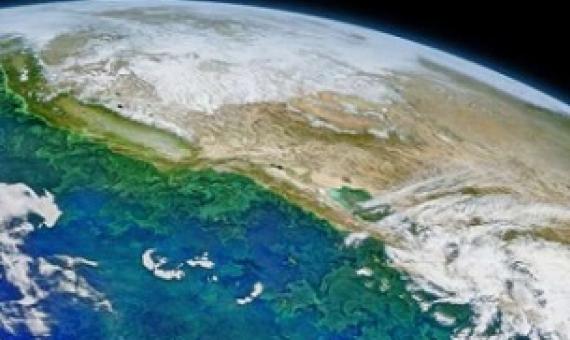The procurement of new technology will help local conservationists monitor how warming oceans are affecting the marine environment around the globe...The equipment is part of a global network of data sensors being deployed to bring better understanding to the impacts of climate change on the mari
A new study shows the coastal protection coral reefs currently provide will start eroding by the end of the century, as the world continues to warm and the oceans acidify.
Australia's Great Barrier Reef runs the risk of another summer of elevated coral bleaching if cyclones and other rain events don't arrive to "suck out the heat", agencies say.
In the past two decades, abnormal heatwaves caused entire sections of reef off the coast of Australia – measuring several kilometers in length – to turn white. Scientists have already found that some reefs are better equipped to cope with recurring heat stress than others.
How resilient corals are in response to climate change could depend in part on the already scarce amount of iron available in their environment, according to a new study. The study reveals that the combination of hot water temperatures and low iron levels compromises the algae that live with
Heatwaves in the world's oceans have become over 20 times more frequent due to human influence. This is what researchers from the Oeschger Center for Climate Research at the University of Bern are now able to prove.
Coral reefs in Guam and the rest of the Marianas archipelago are facing unprecedented damage because of warmer waters and increased carbon dioxide emissions. As of Sept.
Measuring Temperature in Coral Reef Environments: Experience, Lessons, and Results from Palau
Sea surface temperature, determined remotely by satellite (SSST), measures only the thin “skin” of the ocean but is widely used to quantify the thermal regimes on coral reefs across the globe. In situ measurements of temperature complements global satellite sea surface temperature with more accurate measurements at specific locations/depths on reefs and more detailed data. In 1999, an in situ temperature-monitoring network was started in the Republic of Palau after the 1998 coral bleaching event.
The world's deep oceans are warming at a slower rate than the surface, but it's still not good news for deep-sea creatures according to an international study. The research, led by University of Queensland Ph.D.
CU Boulder researchers have developed a method that could enable scientists to accurately forecast ocean acidity up to five years in advance.

